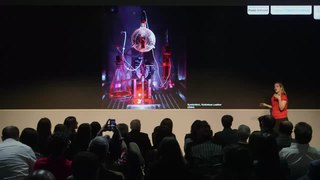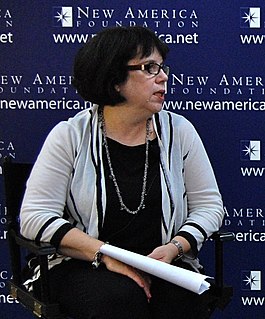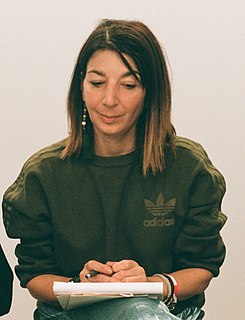A Quote by Vannevar Bush
The common idea that scientists reject a theory as soon as it leads to a contradiction is just not so. When they get something that works at all they plunge ahead with it and ignore its weak spots... scientists are just as bad as the rest of the public in following fads and being influenced by mass enthusiasm.
Related Quotes
Beyond the Einsteins and Darwins, most scientists don't have chroniclers. Einstein and Darwin were geniuses - that helps. Many scientists do amazing stuff, but it just disappears into footnotes and dusty medical journals. If I were masochistic enough, I could spend the rest of my life rescuing scientists. Most of them aren't natural self-promoters.
If the theory accurately predicts what they [scientists] see, it confirms that it's a good theory. If they see something that the theory didn't lead them to believe, that's what Thomas Kuhn calls an anomaly. The anomaly requires a revised theory - and you just keep going through the cycle, making a better theory.
Scientists blame the audience for being too stupid, shallow, or lazy to understand. There has been a fascinating debate in the blogosphere lately about communicating science to the public, and it's clear that most scientists just don't get it. They can't be bothered to talk to real people. Nobody will care about your issues if the price they have to pay is listening to a long lecture from Morton the science bug.
When we just saw that man, I think it was Mr. Myers, talking about how great scientists were, I was thinking to myself the last time any of my relatives saw scientists telling them what to do they were telling them to go to the showers to get gassed. That was horrifying beyond words, and that's where science - in my opinion, this is just an opinion - that's where science leads you.
How did scientists get money in the past? They were either lucky and independently wealthy, like Darwin, or they had patrons, like Galileo. Universities or governments have become patrons only in the last few generations. Many of the great scientists of the past were in debt to their patrons in the same sense that modern scientists are influenced by what their granting agencies want.
Someone recently talked about mass surveillance and the NSA revelations as being the atomic moment for computer scientists. The atomic bomb was the moral moment for physicists. Mass surveillance is the same moment for computer scientists, when they realize that the things they produce can be used to harm a tremendous number of people.
People often think of artists and scientists as being diametrically opposed, but we both believe something is possible. We have a hypothesis and then we do everything to make it possible, but we don't know if it's possible! All the scientists I've worked with have a natural, easy fit with me. The solutions they find are truly creative. All scientists, in some way, are artists.
To the scientists of the Renaissance, your critic was really your ally, helping you advance upon reality. Critics in science are not like drama critics, determining flops and successes. Criticism to scientists is just another means of finding out whether they're wrong, like running another experiment to see if it confirms or refutes a theory. Along with the advocacy principle of the courtroom, It is one of the best ways human beings have evolved to get closer to the truth.



































